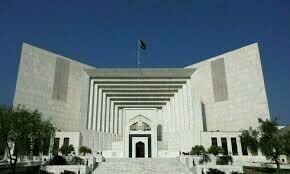PESHAWAR, July 12: The federal government, through two recently issued regulations, has provided legal cover to the armed forces for unlawful acts committed during the military operations in both federally and provincially administered tribal areas, say experts.
They allege that hundreds of suspects were kept in unauthorised detention centres during military operations in tribal areas.
The two regulations, which are almost identical, have been given effect from Feb 1, 2008, to provide legal framework to the military operations conducted in Federally Administered Tribal Areas (Fata) and Provincially Administered Tribal Areas (Pata) since that date.
Legal experts say that these regulations provide wide ranging powers to authorised officers and armed forces besides empowering an interning authority to intern a suspect till the continuation of action in aid of the civil power by the armed forces.
The armed forces have also been empowered to occupy any property with the approval of the federal or the provincial government.
“The Constitution provides for production of an arrested person within 24 hours of his or her arrest before the court, but contrary to that hundreds of suspects have been detained in different spacious buildings including hotels by converting them into detention facilities in Malakand region of Pata and other areas in Fata,” said Advocate Habibur Rehman Afridi, a member of Fata Lawyers Forum.
The president on June 23 signed the two regulations -- Actions (in Aid of Civil Power) Regulation, 2011-- for Fata and Pata. Till now the contents of the regulations have been kept secret and only some selective portions, favouring the government, have been released to media.
Contrary to the provisions of Qanun-i-Shahadat (Evidence Act), these regulations provide that a statement or deposition by any member of the armed forces, or any officer authorised on his behalf, shall be sufficient for convicting an accused.
Similarly, all evidences, information, material collected, received and prepared by the interning authority, or its officials, shall be admissible in evidence and shall be deemed sufficient to prove the facts in issue.
Furthermore, the regulations give a set of offences, which are punishable with death penalty or imprisonment for life or up to 10 years along with fine and forfeiture of property.
Interestingly, most of these offences have already been covered in the Anti-Terrorism Act, 1997.
These laws defines 'action in aid of civil power' as series of measures that involve the mobilisation of armed forces, in aid of civil power or their requisition by the federal government, including measures such as armed action, mobilisation, stationing etc till such time they are withdrawn by the written order of the government.
Furthermore, 'defined area' means the area notified by the federal government, in case of Fata, and provincial government, in case of Pata, in which action in aid of civil power is being conducted in order to secure the territory or ensure peace in any place where armed forces have been requisitioned.
The regulations authorise the federal and provincial governments or any person authorised by it to act as interning authority having the powers to intern a person.
The interning authority is empowered to intern any person, even if he is not in the defined area, who may obstruct actions in aid of civil power in any manner whatsoever; or if not restrained or incapacitated through interment shall strengthen the miscreants ability to resist the armed forces or any law enforcement agency; or by any action or attempt may cause a threat to the solidarity, integrity or security of Pakistan; or has committed or likely to commit any offence under the regulation so that the said person shall not be able to commit or plan top commit any offence during the actions in aid of civil power.
Section 14 of these regulations provide setting up of oversight board comprising two civilians and two military officers to review cases of each person interned within a period of time not exceeding 120 days, from the issuance of the order of internment. The laws also empower the authority to set up notified internment centres.
Furthermore, the misuse of force during actions in aid of civil power has been prohibited.
Section 5 (1) of the regulations provides: “If any abuse or misuse of the use of force during action in aid of civil power is alleged or attributed to any member of the armed forces, the same shall be investigated within the hierarchy of the armed forces.”
Meanwhile, lawyers of Peshawar High Court have termed the regulations repugnant to the injunctions of Islam and the Constitution of 1973. Around 65 lawyers have signed a requisition moved by Abdul Karim Mehsud and Habibur Rehman Afridi and submitted it to the secretary general, Ameenur Rehman, on Tuesday for convening a general body meeting on the issue.













































Dear visitor, the comments section is undergoing an overhaul and will return soon.